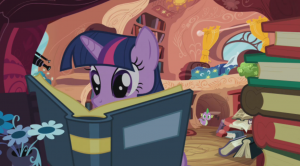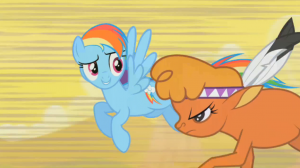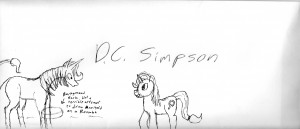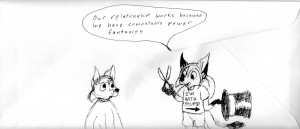On the Ethos of “The Writer”
I had a friend at UC Irvine who constantly talked about “The Writer.” The idea of “The Writer,” as I understand it, is a creation of movies and the media. It’s a cultural stereotype of what writers are, and aspiring writers tend to take this and romanticize it. This makes sense; if one wants to be a writer, they might try to adopt the traits of a writer.
But many of these traits are not even related to writing. Sometimes it feels like bad marketing in practice. Going “Real writers like wine. So if I want to be a writer, I should drink wine” feels very similar to “LeBron James drinks Sprite. So if I want to be a basketball player, I should drink Sprite.”
Some of these aspiration fantasies are downright destructive if emulated: aggrandizing dysfunctional relationships, symptoms of mental illness, and substance abuse.
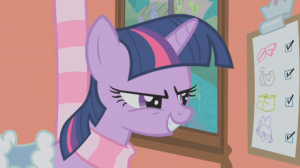
“Scarf to look pensive in the cold. Check. Saddle that looks great in black and white photographs. Check. Galoshes because they were referenced in James Joyce’s “The Dead.” Check. Abusive relationship. Check. And I’m already drunk. Guess who’s ready for AWP.”
I don’t know why my friend was so obsessed with conforming to this stereotype. It might have been because he transferred to being an English major from something completely different and did so late in his academic career. I don’t know if he became infatuated with “the writer” because he was insecure around all these more knowledgeable English majors or if it was his infatuation with the writer image that made him transfer to begin with.
Now my friend is by no means alone. I’ve been to three schools now with three very different writing communities, but all of them had this same common feature. There were students who had a view of “the writer” ethos. I see this either used as a goal, “I need to start doing drugs to become a great writer” (Do not do this). Or it’s used to justify a present lifestyle “I do so many drugs, because that’s what writers do.”
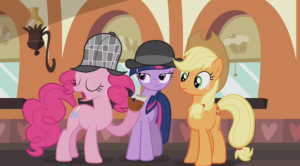
“I smoke a pipe, because I’m a writer. Tobacco? No, it’s full of DMT, the chemical your brain releases when you die. I’ve experienced the moment of death. Have you experienced the moment of death?”
Now I’ve been friends with many writers throughout their entire careers as they’ve unfolded thus far. They’ve changed their mind about certain things after gaining new experiences about the literary world. The friend from UC Irvine went on to work at an agency. Before this job he used to be someone who cared about quality and personal truth. Then he redefined what “the writer” does. According to a phone call I had with him, he said “the writer” keeps track of market trends and writes what is needed.
I don’t think most writers whose name you actually know have ever done that. It’s usually the insecure bottom feeder authors with no vision who do this. But this tells something about the nature of worshiping the image of “the writer.” We make the “the writer” in our image to reaffirm our identity, but also to put ourselves in a status above others who do not fall into our arbitrary categories.
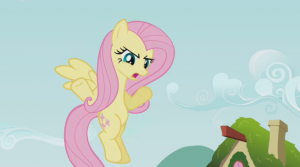
“Real writers have wings, pink hair and a butterfly cutie mark. It represents a unity with nature which is a left over ideology from the Romantic Era poets. But you wouldn’t know that because you’re not a special writer like me. I realized this on my morning walk. Morning walks are something the writer does. If you don’t take morning walks, then you’re not a real writer…a real writer like me. I’m a real writer. My mom was not right about me wasting my time and money on a career path that will never bring me happiness or success. I’m not wasting my life!”
The problem is everyone actually is a scholar of literature to some degree. Everyone enjoys some media of storytelling and poetry somewhere in their lives, whether it is advertisements, conversations, TV, movies, blogs, books… But when everyone is a scholar to some extent, a writer might feel that they have to do much more to separate themselves from the rest of the world, make themselves stand out and be special.
I try to avoid generalizations about what “the writer” does. It is damaging to the art form. We get all these wonderful and diverse people from all walks of life coming in to give their experiences of the world, but what do we do? We encourage them to conform to a hipster douche bag who drink a certain type of liquor and has terrible relationships. If someone is suggesting you’re less of an artist for being who you are, that person knows nothing about art or sex they couldn’t read in any trendy, New York, underground, fashion magazine.
I’ll admit I stole that last line from Say Anything (the band not the movie).
While I don’t believe that there’s a particular way that writers must be, I think there are definitely attitudes and behaviors that, if adopted, would greatly benefit a writer. Some of them are as follows: be eager to learn, accept criticism, learn to get the message despite the messenger, learn other people’s perspectives (including people you hate and who have wronged you), be open to new and different strategies, be open to the idea that even though you think you do these things that you might not actually do them as well as you think…
I have received criticism for this blog saying that it wasn’t very literary because of the ponies.
These people are well-meaning. They’re trying to look out for my career, but I feel like they don’t quite understand why or how I write. I don’t want to put a fake smile on and try to write about writing in a very general sense, blindly reposting writer porn, challenging nobody, making no original thoughts, and any angst or pain should be packaged and exploited for the sake of “seeming real.”
If other people think that acting out a crafted character and pretending you are this person on the internet (Wow, I never realized how much writers have in common with furries), then more power to you. I do not believe this is a behavior that should generate a real fandom nor should it generate respect among your peers. But it is what everyone is told to do in writing school, so I assume it is safe.
I’m taking a different road. I do not see writing a fake blog where I pretend to be a version of myself who is more like “the writer” and less in love with My Little Pony as a proper use of my talents or my time. I will stand out by being myself. Let’s see how that turns out.
Read MoreVideo from the LA Times Festival of Books!
If you recall I did a poetry reading at the LA Times Festival of Books. Finally, here is the video so that you can lie to your friends and say that you were there! Or if you’re just curious about the type of writing I do, well sorry, but this is mostly just poetry. But if you want to see the type of poetry I do then here’s the video!
The video is awesome. There are people laughing and groaning, and there’s a poem about a Roomba, and a humor piece about a heterosexual unicorn, and a sad thing about crows, and something about Laika (the first dog in space), and this thing based on this Noam Chomsky quote about green ideas dreaming furiously. OH YEAH THERE’S A POEM ABOUT MY LITTLE PONY!
Introduction by Caron Tate (0:00)
Humor List
Uncovering a Unicorn Mare’s Nightmare: Signs Your Son Is Only Attracted to the Opposite Sex (1:11)
Poetry
The Art of Being Expendable: An Instruction Guide (3:33)
Crow Parenting (5:11)
The Roomba Suicide (6:05)
Best Pony (8:00)
How to Treat Your Ideas (13:40)
Why Do You Even Want a Book?
Writing students seem to have a common obsession, getting a book with their name on it. I had a friend in undergrad who would always talk about how she just wanted a book. One book and she would be happy. She disregarded all criticism and fired all of her editors, because she felt they were getting in the way of her dream by telling her to slow down. Now she has the book, a novel. It’s available to buy now. I would link it, but it’s the worst book I have ever read, and I can say that without hyperbole. After the novel came out the head of the fiction department at her MFA said that this book might ruin her career as a writer. She was so driven by her goal of getting a book out that she ignored any reason why she wanted a book to begin with.
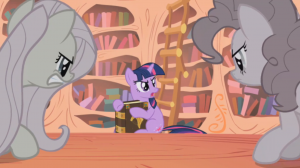
“This is my book, and people are going to read it…by the Christmas shopping season, regardless of how many more edits you think it needs!”
Asking someone why they want a book seems almost too obvious to answer, yet after they actually think about the question, they realize it’s actually much tougher than they thought. The answers I’ve mostly gotten were desires for attention, celebrity, money, etc. Of course, keep in mind nobody actually gives up these answers so easily or in so many words. Everyone’s like a contestant on “The Bachelorette,” even if they’re not playing “for the right reasons” they’ve all learned how to talk like they are. And no self-respecting writer readily thinks of themselves as a hack.
If anything I’m surprised how many people are willing to admit that they write as a means to get a book, and the book is the means to money, attention, fame, validation, whatever else they are looking for instead of the book. It’s a dangerous question: “Why do you want a book?” because it calls into question why you’re devoting your life to something. It’s a scary idea to think that you have no fucking clue, and believe me, many people don’t.
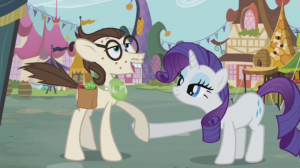
“I’m not on ‘The Bachelorette’ to find love. I’m mostly just publicizing my website. Getting physical with a hot white girl is just a bonus.”
And so you see students who will write anything to increase their publications. I’ve been lectured by a writer about how it’s about the quantity and speed of publications and not the quality of the writing. I had another writer go on for days about how Native American literature was the new trend in writing (apparently) and how she wished she was Native American so she could get the book deal (This isn’t just a willingness to compromise self-expression, but the entirety one’s self!) I heard about a student, without any fight, agree to his thesis adviser’s recommendation that he write genre fiction. That student admitted a hatred for genre fiction and a want to do a literary novel, but the adviser had a connection to a publisher. So he agreed so he could get the book. When he told me this story, he wanted me to pity him for having such a terrible thesis adviser, but I was just filled with contempt. If his own vision wasn’t something he could stand up for, then why should I care when it’s taken away?
I know the writing field is not as much of a meritocracy as it should be. I think all arts are corrupt in that way and probably always have been. So I won’t say that these people are going to fail, but what I am saying is that I don’t think these people will be proud of themselves in the end. There’s a difference between an artist and a content creator. The difference is that an artist owns their vision and manifests it, while a content creator manufactures a product. Maybe it’s just me projecting myself onto others, but I couldn’t be happy as a content creator.
I’ve never made a compromise with my editors or instructors that I didn’t agree with, that I didn’t feel still captured myself, my vision, my writing. I think the rarest and best answer is, “I want a book, because I write.” I want to share my stories with other people. The book is a venue for that. That’s why I want to be published, to serve my ideas. I see a book as a service for my stories; I don’t see my stories as a means to a book.
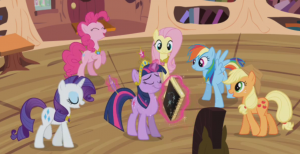
When I publish a book I want to be proud of what I wrote, not that I caught the market at the right time. I’m a writer, not a god damned real estate agent.
Then again, I’ve been spit on and dismissed as a writer, a theorist, and an editor so many times during my career as a student that I’ve developed a pretty mean chip on my shoulder. I know if you dissected me enough you would find vanity and validation motivating why I want a book, underneath the desire of serving my ideas. Maybe I’m also a Bachelorette contestant, here for the wrong reasons, but I’ve learned to talk the talk so well that I’ve tricked myself into believing my own fairy tales.
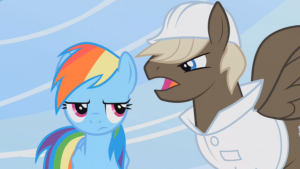
“I’ve never seen writing like yours before. Now if that sounded like a compliment, let me disambiguate, there’s no market for you. Who you are is someone nobody is interested in. Become someone else or you will fail.”
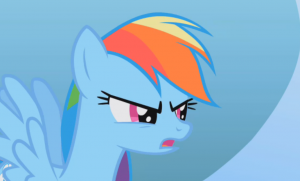
“I’d rather try and fail as myself than ‘be smart’ and succeed as someone else. An attempt, I owe that little to myself and my dreams. What will your definition of success bring me when I’m old and wondering what it is I’ve done with my life? Am I going to wonder what would have happened if I only had more courage when I was younger? Besides, I’m a damn good writer. I dominate the audience at readings and have little trouble getting published. I’m working out just fine as a humor writer, so thank you for your concern.”
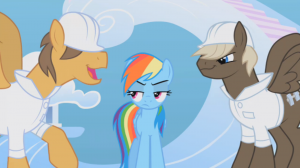
“You? A humor writer? That’s funny, because your writing makes me laugh…wait. I mean your writing is a joke. There, much better. Good self-edit.”
Who knows? I never put much thought into this question until I started my master’s program, which has a (sub)culture of among the students of being more interested in learning how to be a successful writer than in learning how to write (as if the two have nothing to do with each other). Considering my program is called a Masters of Professional Writing instead of a Masters of Fine Arts, this really should have been no surprise. I just wish someone would have told me earlier. I’m kind of lonely here, and I’m becoming angrier the longer I stay here. I’m having a harder time not just shouting “If you don’t have any fucking passion for writing, maybe you shouldn’t be getting a masters degree in it! Clear the bookshelves for people who care! Your life is too short to do something you don’t love! Maybe writing isn’t what your cutie mark is telling you.”
Note: I don’t know if this is a majority of people in my program or just a vocal minority, but it’s draining me just the same, and I want it to change.
Now, I’m not saying to give up if you’re not very good or not very successful. We all start off with varying degrees of bad writing. We have to work our way up. Writing well is something you can learn with focused study, right reason, time, and practice. I would never tell someone to give up on something they’re passionate about (#ratatouille). What I’m saying is if you don’t have passion for what you do, regardless of what you’re doing, you owe it to yourself as a mortal creature to be honest with yourself about it and not waste your life on it.
Maybe I’m the not the unheeded prophet, maybe I’m just wrong, naive, & idealistic. But I spent several weeks showing people how to SELL their creative works on Kickstarter. It’s not like my head is completely in the clouds and not grounded by captialism reality…right?
Investing Time: When It Backfires
So my best friend growing up, Mike, made this observation about me: “You work really hard so that you don’t have to work harder later.” He told me this when I said that my summer should be easy because of how far ahead I was on my thesis. So the class to begin preparing someone’s thesis would be easy.
My thesis prep class is a one on one class with a faculty instructor. By then end of the summer you need 60 pages of ready to print work. I gave her about 90 pages on the first day.
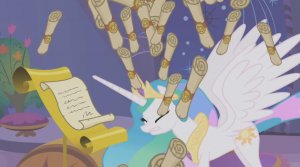
“Here’s the thesis I’ve been working on since undergrad. I’m going to go off to enjoy my summer now. BYE!”
As you might have expected, this did not go as planned.
Meeting 1
She pretty much said that master’s thesis is supposed to be representative of the work I’ve done at during my master’s degree. She didn’t feel the poetry worked well with the fiction and so the poetry was kicked out. Also she didn’t kick out my fiction, but she just didn’t really talk about my other stories. She just said “Unicorn Hunting” is ready for print.
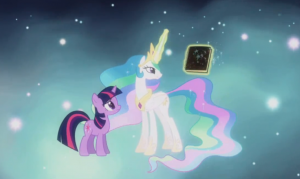
“What do you mean I have to write another 35 pages? I just need 60 pages. Didn’t I give you 75 pages of awesome stories?”
“No, you gave me 25 pages of AN awesome story and 50 pages of failure.”
Finally she said that it would be in my best interest if we worked on a short story from scratch together so I could have one more solid, finished piece in my arsenal. We decided we would work on new work for meetings 2 & 3 while using meetings 4 & 5 to edit.
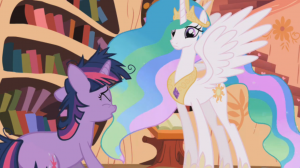
“My friends have thesis advisers that are lazy, don’t show up, and/or let them get away with terrible writing. Why did I have to get a thesis adviser who cares about my development, supports my aesthetic, and worst of all has integrity?! You’re getting in the way of summer. I have a Universal Studios pass that’s about to expire, and I paid way more to get parking on the pass, and I didn’t use it enough to actually get a return on that investment!”
“I’m sorry, I guess I just wanted you to get the most out of our meetings. Hey, wait! You’re the one who ask ME to be your thesis adviser! You’re not the only one who has a summer, jerk!”
Meetings 2 & 3
The story I decided to write was ambitious and beyond my current skill as a writer. I had to develop more in order to do it justice. My adviser really guided me on exactly how to do it. I really can’t imagine the story coming out as well as it did without her help. Although, because the idea pushed me so far beyond what I was used to, not surprisingly my submissions were almost always tardy and short on pages.
I was supposed to give her a short story for meeting 2 and a new short story for meeting 3. I gave her half of a short story for meeting 2 and the second half for meeting 3. On top of that those pages were several hours late. She didn’t seem to mind, but I felt like if I were a better writer I could have managed the deadlines. So it just felt overwhelmingly like a personal failure, even though what I was doing was actually a personal best.
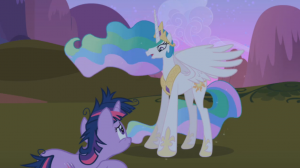
“You have submitted your pages 12-24 hours past your deadline. Your tardiness has made it impossible for me to print your manuscript before my flight. You will NOT receive gentle, personal, pencil notes on a physical manuscript which would be bound together with a doggie-shaped paperclip. Instead you shall receive a cold, sterile Microsoft Word document marked up with the comments feature. The only personal touch you will feel is my attempt to lessen the blows of your failures with smiley face emoticons.”
“That’s actually better. It’s easier for me to lose a manuscript bound together with a doggie-paperclip than it is to lose my laptop.”
“Oh, well, should we just do this from now on then?”
“I mean, whatever is easier for you.”
“Well, the university gives me free printing services, so if you want a physical copy…”
“Actually I have access to free printing services too, so–“
“Yeah, I’ll just send this to you, and you can decide to make it tangible or not.”
“I’ll probably keep it digital, because when I edit I can do a dual monitor setup with my TV and my laptop. It’s kinda neat actually.”
“We’ll do this from now on then. But get your work done on time!”
Between Meetings 3 & 4
In between this time I wrote The Art of the Dress: Lesson on Criticism
After the a lot of trying to think smarter rather than work harder, I still ended up working a lot to fix up the story. She replied with an e-mail saying that she wanted to talk about the story, which I mentioned at the end of my last post.
I had no idea what I could possibly do. I was getting some slight anxiety over it.
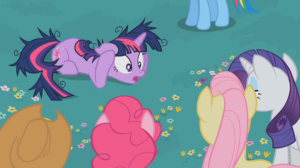
“I don’t know what to do anymore. Any of you girls have a gun I can borrow and a bullet I can have? No, I will not call the suicide helpline.”
Meeting 4
I must have had at least some sound logic in the Art of the Dress post. It turned out she liked it. I must have been reading into things from a place of insecurity, because she said she could sign off on it after a few slight revisions. Finally, all that hard work paid off and we were done! Ahead of time!
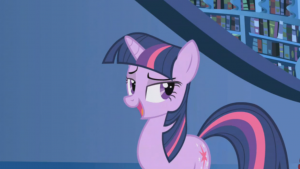
“Well, if we have 60 approved pages and ahead of schedule, then I guess I’ll just head over to Universal Studios…”
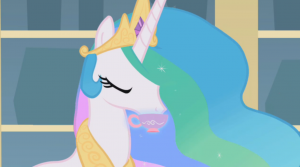
“I want you to write me another short story for our last meeting. It would be a shame to break your current momentum.”
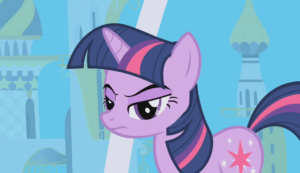
“It would also be a shame if I let my Universal Studios pass go to waste, but I guess a writer is someone who writes, not someone who goes on the new Tranformer’s ride…”
Note: My thesis adviser is the nicest person and would never say the things I wrote in here for humor. USC mostly has a fantastic faculty of caring individuals, but you do hear the occasional horror story. I know this was told in the style of complaining, mostly for comedic effect. However, since my adviser didn’t let me be lazy, I’m that much further along in my work. And perhaps next year when I finish my final project, I’ll get to skate by on the work I did this summer, though I doubt it. I guess the real lesson I’ve learned is that I’m not the type of person who should get annual passes to theme parks.
Over Burdened: Comic-Con, Southern California Review, and School
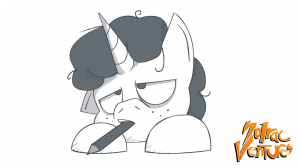
My OC Iambic Hexameter is exhausted with all the writing he has to do lately. Drawing by Kreid from Solrac Ventures
I have been more productive in the past few weeks than I have been in the last few months combined. That would be a good thing if it wasn’t so exhausting. Also, I’m kinda an agnostic Muslim, but I still play Ramadan. So all this work and thinking and stuffs has been while not eating or drinking while the sun is up. I’ve had to cheat on some days.
I fasted throughout Comic-Con so that I could get some extra Allah blessings as I ran up and down the San Diego Convention Center trying to get copies of the Southern California Review to select cartoonists that I respect. Since the other editor-in-chief and I have made the decision to start adding literary art comics as one of the genres that we publish.
I’m still waiting to hear back from most of the comic artists, whom I’ve been e-mailing individually, whom I’m also giving a month until I consider myself blown off and try for others.
So far we’ve confirmed Dana Claire Simpson, the artist behind the finished web comic Ozy and Millie and currently her syndicated comic strip Heavenly Nostrils which you can read for free on gocomics.com.
We have a tentative not completely a yes, but more like a probably from Nate Powell, graphic novelist who made Swallow Me Whole, Any Empire, and just released the first volume of a graphic biography about Civil Rights icon Congressman John Lewis called March.
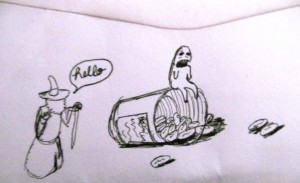
Swallow Me Whole Fan Art. I won’t show the reverse side because my Any Empire artwork came out terrible…
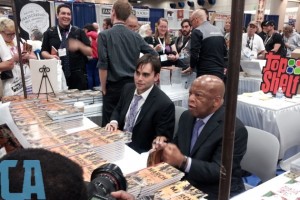
Comic Alliance actually took a picture of me talking to Nate Powell about the Southern California Review. (Top Left: Me, Top Middle: Nate Powell, Middle: Andrew Aydin, bottom right Congressman John Lewis
I wanted to have time to personally draw fan art and make a personal letter to each cartoonist explaining why I was a fan, why we were interested in their work, and why their involvement in Southern California Review would be important. I hated soliciting work as poetry editor, because I couldn’t really do things like this to show how sincerely I liked the poets work. I don’t like mass letters. I like a personal touch, but it takes a lot of time. I drew these envelopes while in a laundry mat the day before I left for Comic-Con.
Last weekend I took a television writing class taught by a writer on the Simpsons, Michael Price. Which was both fun and time consuming. It really taught me a lot about working in a writer’s room and really got me over my fear of them. This is something I’ll probably write about when I have more time. Doing this class right after doing a killer revision of a short story was creatively draining. I mean I literally finished the draft at 8AM after an all-nighter, took a shower, and drove to USC to attend this all day class which got out at 4.
But right now I still have a 6 page homework assignment to turn into that class, and I have a ton of reading to do for my thesis adviser, who I don’t think is too happy with my last revision of my short story. Her e-mail had a “We need to talk” vibe to it.
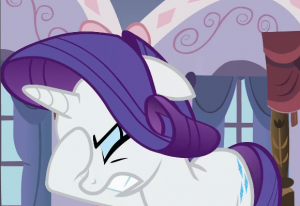
This is a real facehoof if you read my previous post.
The Art of the Dress: Lesson on Criticism
As I write this I am recovering from Comic-Con and battling against a deadline where a short story wrote needs to be second final drafted. After meetings with my adviser she had told me a lot of her comments verbally, and we were largely on the same page. I was shocked to see that on the written pages there were way more notes, and it was worse than I had thought.
Before we get started, any bronies and non-bronies might want to (re)watch the first part of the song to get the context of this post.
I had a little too much fun writing this story. I added a lot of avant-garde elements that were definitely too experimental. Some of the tools were things like excessive footnoting, the pretense of the story being historical fiction from the future about our times, animal dialects, pop culture references, sci-fi fantasy sequences, and treating animal languages as being tools manufactured by their perception of the world (my take on the Whorfian Hypothesis).
It was fantastic for a writer like me who loves the social sciences to create the politics and social dynamics of this world. And just in terms of technique, and what I needed to earn was one of the most ambitious pieces I had ever attempted. The first draft was far from perfect, but considering how many ingredients for failure I threw into the mix, I dared this story to fuck up. Yet with theory I knew how to make it all work, or so I thought, or so I’m thinking.
Regardless of how this turned out, I had an incredible time writing it: minding the intimate details. It was like I was twirling around my room, carefully cutting all the pieces of the story and watching them magically twirl about until they formed something whole and beautiful.*
Then the song kicks up again, and we enter the nightmare stage.
There’s a lot of “This doesn’t work for me,” and “I’m not buying this element,” and “I think we should remove this.”
For the most part an editor’s job is to provide you with solutions and usually the easiest solution to make the piece work. My problem was that most of my experimentation doesn’t exist in your everyday story. So the easiest fix when it doesn’t work is “Remove it.”
My editor an I are both on a firm deadline from my writing program to have this revised and signed off by the end of the week. The story is a strong enough story to exist without the avant-garde bullshit. However, the story doesn’t feel right without it. So I was posed with a moral question. Do I just send in an obedience draft where I mindlessly do exactly what my editor wants just to meet this deadline and then change it back to what I want before I publish it? As Rarity puts it, “There’s simply not much time.”
But I thought about something a friend sent me about a month ago. She said that her screenplay pitch had gotten all these weird criticisms about changing the main character and other such things to the point where they were asking her to write a completely different movie. I took a look at her treatment and pitch and saw where the real problems were. It wasn’t that her story was the wrong story to tell, or that she had picked the wrong protagonist, but that her pacing was off. The central conflict was in the first act instead of the second act, which made it seem more like a different character should have been the protagonist. I told her:
…[O]ne thing I’ve learned is that the surest way to ruin something is to take criticism at face value.
This is Rarity’s mistake. She does exactly what her friends tell her to do. They end up ruining the dresses. Remember an editor’s job is to find what doesn’t work and find A SOLUTION. It is your job as a writer to see if this solution is practical. Also to see if the editor is actually solving the real problem.
Being able to take criticism is a skill that requires a lot of practice and patience. Some people act like being able to take criticism is just not crying when facing a lion’s den of a workshop. It’s not just being able to handle advice with grace and poise regardless of how tactless or rude it might be. It is about being able to improve your work and yourself despite the message or the messenger.
One thing that appears a lot in my notes is the phrase “When/Why does this happen?” Even though there are entire sections that actually address the whys and the whens in a pretty heavy-handed and obvious manner. My first reaction to comments like these were rage. My editor wasn’t reading closely enough. They weren’t paying attention! I did my due diligence here, but they ignored it and commented on me as if it was a fault in MY WRITING!
But then I thought, maybe that part was just boring? That’s why they missed it. That’s the real criticism. Instead of calling attention to details again, I just need to make the ones I put in more interesting so they will stay with the reader. Perhaps by improving the prose or with better imagery, etc.
So for the avant-garde elements of this story, I need to do the same thing. I can’t make Rarity’s mistake. This is my story. When people read it they will be seeing it as a test of what I can do as a writer. I don’t want to have my name on something I don’t believe in.
Remember, it’s about “balanc[ing] style with adherence.”
Read More
